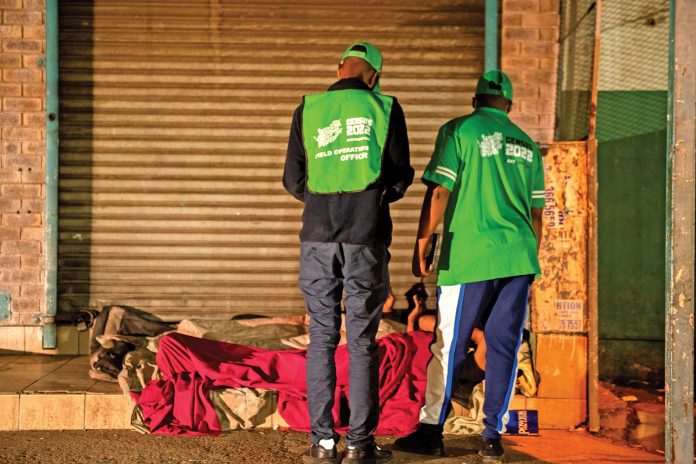Johannesburg – Statistics South Africa has embarked on its once-a-decade process to count all people in the country, including non-citizens. Census 2022 is arguably the most important in the country since the first post-apartheid census in 1996.
That census was the first since the end of apartheid in 1994 and saw to it that all South Africans were counted. Under apartheid, fictitious “homelands” excluded millions of people from the count. Excluding them allowed the apartheid government to deny their rights, and responsibility for meeting their needs.
Homelands or Bantustans were then mainly rural, underdeveloped areas where black South Africans were required to live and have nominal “self-rule” and “independence” along ethnic group lines, separate from white people. They had their own censuses.
The 1996 census was a vital tool to inform every government department, economic entity, and every citizen, about the state of the nation, the depth of need, and the location of needs to be met.
While it is a legal obligation for everyone to complete a census form, the 1996 census saw a real willingness to participate and get counted – from a newly liberated population still basking in the post-apartheid moment.
Fast-forward past the last census of 2011 to the present. In the period since then, the country has witnessed state capture, a former president (briefly) in prison, a collapse in the provision of basic services such as water, rising violence, and hostility towards “foreigners”. The country also has appalling rates of gender-based violence and is reeling from a global pandemic coming on top of the disease burden already afflicting South Africans.
Covid-19 took many lives and wrecked many more livelihoods. After two years of the pandemic, lockdowns, and curfews accompanied by and amplifying cynicism about the institutions of government and political parties, South Africa is in a bad space.
The recent local elections saw the lowest ever turnout. Stories of massive corruption in procuring personal protective equipment cemented the view of both politicians and public servants as self-interested to the point of lacking all empathy for citizens.
With frequent power cuts further sapping the will, South Africans have reached a remarkably low point when it comes to faith in the government or politics.
In this context, Stats SA launched Census 2022, and has asked all people in the country to “get counted”.
Cynicism about politicians and public officials should not blind South Africans to the power of data, and the pooled facts of all the lives being lived in South
Africa right now, and the story they will tell of the past decade.
A census is a tool for accountability: it is the ultimate judgment on how all governments have performed, from cities to provinces to national, and thus also on all parties involved in governance.
The census will be a reckoning for what has gone before, as well as critical for all planning in society going forward.
The census will inform economics, social policy, health care, and investment. It is a tool to understand what has happened to South Africans in the last 11 years since Census 2011, and a critical planning tool as we look to the future.
Despite the challenges of the last few years, which included repeated funding cuts, as well as the impact of the pandemic, Stats SA has moved relentlessly to prepare for the census.
To deal with both a reluctance to participate and the effect of Covid-19, everyone can choose how to complete the census – online, on a phone or in person. Stats SA has done what it can to make it comfortable for everyone to participate.
The cynicism about the government and politics is warranted – as the reports of the Zondo Commission into State Capture are making clear. But state capture did not extend to Stats SA, which is an autonomous entity, led by an entirely independent statistician-general, and advised by an independent statistics council.
Stats SA protects the census data, processes and analyses it, and shares results in a way that no individual can possibly be identified or located.
All people should “get counted” so that their voices are heard.
- Everatt is a professor of urban governance at the University of the Witwatersrand
Follow @SundayWorldZA on Twitter and @sundayworldza on Instagram, or like our Facebook Page, Sunday World, by clicking here for the latest breaking news in South Africa. To Subscribe to Sunday World, click here




